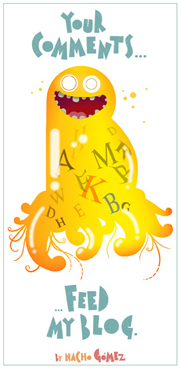
These days developing the basic competences (also known as the key skills) is the order of the day in schools and here are a few fun ideas to work on that most difficult of competences (well, for the average English teacher, that is!), the mathematical competence:
Card Game
 Fraction dominoes
Fraction dominoesPrepare sets of fraction dominoes and give out to each group. Each student takes 7 dominoes. Then they play, laying down dominoes and trying to match, eg. one has twenty percent, the other has 0.5. that is, the quantities have equal value.The matching faces must be placed next to each other. If the second player does not have a domino which matches the first, they miss a turn.
Surveys
Free Time Pies

Ask each student to list their hobbies and to order them in terms of frequency. Ask them to draw a pie chart, in which the different sectors represent hobbies, and the size of the sector represents frequency. The ss label the sections of the diagram with the names of the activities. Then they write on another piece of paper a few sentences to describe their routines, eg. I sometimes go to the cinema; I always watch Peking Express on Sunday night, etc. Collect the pieces of paper and put them in a box or on the table. Display the pie diagrams around the room. Each student takes a piece of paper and reads it. They then have to find the matching pie chart and find the student who wrote the information. To do this, they have to circulate and look at the pie charts and then ask classmates about their hobbies, eg. When do you go to the cinema?
Quantifier Survey
Prepare a set of Quantifier Survey statements, which are a series of sentences with most, some of us, none of us, we all, etc… Give out the statements to each student or group of students. They read the statements. They have to find out if the statement is true, so they need to prepare questions to ask other students, eg. Do you live near here? They mingle and collect responses. They count the responses and decide if their statement is true. If not, they must write a new statement which is true for the class. Then each student or group reports their findings, eg. “19 out of 20 of us live within one kilometre of the school so it´s true to say most of us live near here”.





No comments:
Post a Comment